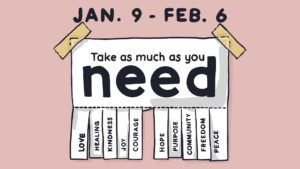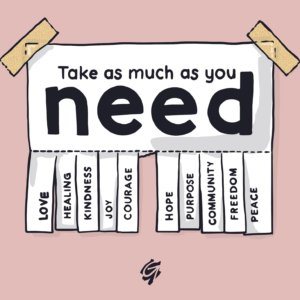On December 10, 2003 I found myself hovering over a small Afghan boy with shrapnel in his chest, gasping for air. Beside the child, a medic flicked a large-bore needle, preparing to jam the syringe into the kid’s chest. I waited a moment longer, watching the blood pool into the silt below the child’s back, then found my feet and ran.
Everything around me was in the process of pandemonium as soldiers grabbed rifles, shouted, headed toward bunkers, all while incoming 107mm rockets exploded around us. My job that day was to rally with some intel soldiers and ensure the local Afghans on our small base found safety. When we realized the Taliban and al Qaeda were targeting our bunkers, we made for our ramshackle kitchen where dirt walls somewhat reinforced against the incoming shrapnel. My friend Steve and I were the last two men to get everyone to safety before the world went black.
When I woke, a large Afghan man with frantic eyes and a wool turban was gesturing wildly. I tried to stand, stumbled a little, and then poured my body into a wall waving off the man. Confused I started down at my arms which were covered in translucent flecks that I began rubbing at until my hands ran red with blood. The sole window in the area had exploded sending glass and shrapnel into my forearms as well as the concussive blast slamming me head first into a wall. Once I realized I was rubbing glass into my arms, I stopped and looked around for my friend, Steve, but he was gone. My foggy thoughts immediately convinced me he’d been vaporized until I noticed a screen door leading into the area we ate had been torn of the hinges. Inside, the room looked like a toddler had thrown a antrum with chairs and tables, while a large blood streak crossed the floor leading into a corner. Honestly it looked like one of those scenes from the Walking Dead where a zombie had dragged it’s body across the floor.
In the corner rocking back and forth I found Steve holding his elbow. Running over to him, I shouted “LET ME SEE!” He tried to say something at first but because of the blast impact all I could hear were muffled sounds and a constant ringing, so I pointed at his arm. When he finally relented, I saw the sleeve to his uniform was soaked in blood. Not wasting time, I pulled out my steel black dagger and cut away the sleeve until I could see his arm. I found the wound in his tricep, where it looked like a pop can had exploded and bits of mangled flesh hung loosely. This is perhaps the greatest part about the military, is that instead of freaking out, muscle memory took over because I knew two things:
- Steve was bleeding out
- If I didn’t get him patched up he was going to die
Lucky for me, another soldier burst into the room and helped me carry his limp body to safety, and we began patching him up all while more artillery reigned down. Knowing that he wouldn’t make it, I ran out the back door to retrieve the medics but ran smack dab into a newly constructed concrete wall. On the other side was the triage rally point for wounded, so I began to pound my fists on the wall until they bleed while I screamed.
That’s when the fear took me. Everyone wants to pretend they’re the tough guy in combat, but you don’t know how you’ll respond when people are dying and you’re afraid. So I ran back, but not before another rocket knocked me to the ground When I burst into the room, Steve was ghost white, while his head lolled to the side like a drunk, and then I screamed, “THEY BLOCKED ACCESS TO TRIAGE! WHERE DO WE GO!?”
It’s been almost 19 years since that fateful day. At the time, I was a 22-year-old kid who’d joined the Army for the college money in 1999 (yes I know I just dated myself). Never in a million years did I expect I’d end up in a war, on a small base on the border of Pakistan, and have to fight to survive. I can see some of you squirming to know what happened, and I promise, we’ll get to that story, but let me tell you the first thing about combat and coming home—war changes you. It changed my identity, made me wonder who I was, what I was capable of, and I had to wrestle with the humanity, complexity, and barbarity of what I’d done and seen.
So when I came home from war, I couldn’t deal with the pain and trauma of what I’d seen and experienced. I was certain if there was a God, he might just be cruel given the human condition I’d seen in combat. See, I grew up in the church in the 1980s and 90s, and most of my upbringing was like the old Kevin Bacon movie, Footloose—don’t drink, don’t dance, don’t fool around and you and God will be cool. But all around me, Christians were about politics or not really interested in living their faith. See it’s one thing to claim to be Christian and another thing to actually BE Christian to others. Worst of all, I was the kid who loved metal music—like Metallica (props to our boy Eddie Munson from Stranger Things)— during that era, so by proxy in the church I was considered “evil.” I remember going to church camps growing up where they made us all burn our secular albums and this kid tried telling me he heard demons hissing in the fire. I was smart enough to have paid attention in science class knowing how plastic and heat responded. Not demons. Science bro.
Eventually, I quietly stepped out of the church after the church I attended went through a major scandal. The reason I didn’t tell anyone I’d left was because when you grow up in the buckle of the Bible belt and renounce your faith or have serious doubts, you get the hellfire and damnation talks, which revolve around your burning for eternity. Great options there: Believe as they do or burn? Hmmmm. Which do I choose?
So to escape that environment, I enlisted in the Army, and by 2003 found myself in Afghanistan while my friend bled out.
So what happened that day? Was I the big hero? Quite the opposite. When I burst back into the room, I was too scared to run out again, so I literally told the other soldier, “Your turn to get blown up bro” and I stayed behind and continued to patch up Steve and keep him awake. It was until the Air Force called in a B1-B Lancer Stealth that the attack ended, but at that point I was fading in and out of lucidity, not knowing how badly I’d been hurt. My wrist was broken, I was covered in blood and shrapnel, and I had a traumatic brain injury. Somehow I managed to help carry Steve on a litter to a helicopter, and he survived. But when my team sergeant found me, my speech was all word salad and I was swaying everywhere. Because of that day and my actions, I was awarded the Purple Heart for wounds received in action and the Army Commendation medal for heroism under fire.
But here’s the thing. I didn’t feel like a hero. I felt like a coward because I froze and my friend almost died. So when I got home, I didn’t know how to live with that part of me. I was twenty two with a bunch of valor awards from a war that less than 1% of the population had fought in, and everyone was calling me a “hero.” But deep down I knew I was the coward. Not only that, but when I left Afghanistan my best friend replaced me only to get killed a week later. So my identity to everyone else was hero, but to me I was forced to relive endless terror as my finest hour. And I was really struggling with my purpose and was smack dab in the middle of an existential crisis because of the trauma of war.
In modernity, we love to paint ourselves as enlightened, and we’re often smug about it. Oh, look at those barbarians in times past, we would never do such a thing! Really? Because we can literally destroy the world now with nuclear weapons and yet we have no idea, as a species, why we’d destroy the world. You ever thought about that? During the Dark Ages you didn’t have to worry about nuking the world. In fact, all our technological advancements have led to great human suffering between drone strikes and the internet, and it’s never been easier. So my conclusion was that as a species, we were destined to maim and hurt one another, and I didn’t know how to live with that.
So you know what I did? I chased the dragon. I knew the feeling of war and the simple identity of being a soldier and completing a mission. So I volunteered to go with a special hand-picked team from my unit to head to the most violent city in Iraq—Ramadi. During the surge from 2006-2007 Ramadi accounted for half of all daily attacks that happened in the entire country and half of all deaths that year for the United States Marine Corps. It’s where Chris Kyle—the American Sniper—earned his nickname “The Devil” and where Navy SEAL Jocko Willick is best known for talking about the Battle of Ramadi and what his teamed endured during that time.
It was during the Battle of Ramadi that I once again found myself wondering who I am and what type of person I would become when faced with a dilemma. The day after Christmas in 2006, my 4 man team left with a Marine Expeditionary Force to conduct clearing operations and route out insurgents during the Battle of Ramadi. Two of my men went with one platoon clearing one side of the city, while my lieutenant and I stayed on the opposite side. By the third day of the operation, one of buildings where we were staged came under fire. I sprinted to the rooftop with the First Sergeant of the outpost. Some short distance away, my other two team members were engaged and holding off 20 insurgents single handedly.
One of the cruelest things insurgents did the Iraq War was have young children, no more than eight years old, carry ammunition and munitions between staged positions and attacks. They knew our men would die or that Americans would be forced to engage an innocent child to save their men. When I arrived on the rooftop, the First Sergeant handed me his rifle and I peered through his high powered scope. “Take a look,” he told me pointing to a position on the ground. When I peered through the rifle, a young girl in a yellow dress with black hair clumsily carried a box of ammunition. And I froze because I knew her. We called her “the flower girl.” For several months, we’d been working to get electricity restored and would meet with local engineers and planners. The Flower girl would always be near the outpost and bring the troops flowers. In turn we would give her candy, chocolates, and a whole lot of hugs. Sensing my unease, the First Sergeant prodded me, “You could shoot her… technically.”
Seeing the smoke plumes in the distance, I didn’t know what to do. What made it worse was that I didn’t know if she was for sure heading that way with explosives or the status of my men. All I knew was that we had troops under fire and my men were there. So I was dealing with the question of, do you let insurgents get resupplied and give them a better chance of killing your friends? Would I potentially sign their death warrant? Or do I shoot an innocent child?
That day I handed the rifle back to the First Sergeant and solemnly shook my head. He told me he was proud of me and that some men couldn’t make those decisions because they were forced into life or death scenarios, but today I made the right one. While I’m proud I made the right decision that day, there were other days where we had to take more violent options. Eventually, me and my team made it home after 15 months of fighting and my 4 man team walked out of Ramadi with 5 Bronze Stars, two of them with valor devices for heroism in combat.
It was this last deployment though in which I finally crumbled once I came home. My wife had left while I was overseas. I was living on a friends couch with no job or direction. At night, I’d drink myself to sleep and in the morning cry in the shower so he couldn’t hear me (he totally did though). Because he could see I was getting worse, one morning he looks at me and says, “Can I take you to church?” The funny part was he was an atheist and I was agnostic at best, but I was like “uh, sure?”
So I end up at Gateway Church here in Austin, Texas! Now here’s the thing. Gateway was doing this church at a bar thing down on 6th street to attract young 20-somethings. So I go to this event, and when I arrive, it’s kind of weird. There’s a human fish tank and crushed velvet everywhere. And I was like “If they start baptizing people in this fish tank, I’m OUT.” But then this guy name Josh takes the stage and starts talking about his own life. How his parents died back-to-back. How they were hoarders. How he didn’t know who he was too because of the messages he received growing up, and his own disillusionments with some of the Christian message. But that was all it took for me to break down because I realized though we were different, we were the same.
After he finished speaking, I knew I had to introduce myself. So I make a bee line for this guy, and I can tell he’s kinda thinking, “is this guy angry with me?” because I’m still in military walk mode. But when I reached him I just stuck out my hand and said, “Hey……My name’s Ben….but my friend’s call me Sledge.” And Josh takes one look at me and says “Of course they do.”
After that we hit it off even after I accidentally hit on his wife. Look, I didn’t know she was his wife, alright?? But here was thing about Josh. He helped me explore faith, meaning, purpose, and confront the trauma of my past, just as he was bravely doing. From there I met John Burke. Can we give it up for that man? You don’t know just how much he loves you and the people in this church. There are few men I credit with my own spiritual development as him. But I asked John hard questions like “If God is good and controls everything, why is there evil and suffering in this world? Does he just not care?” or “Why is it that in the Old Testament God sets the liar and murderer on fire, but in the New Testament he hangs out with them?”
John was beyond gentle and kind and put up with a bunch of questions from a know it all, but encouraged me to take my pain… and grow so that I could finally discover who I am in Christ. But can I be honest instead of feeding you fluff? It was extremely hard and painful. And that’s what I discovered when I became a Christian… God will always take you to your deepest pain and hurt to have you heal and then heal others. And if you think I’m making this up, we only have to look at the Apostle Peter shortly after Jesus’s resurrection. Now if you’re new to exploring faith, let me give you some backstory. On the night Jesus is arrested and betrayed by Judas, all the apostles flee. Peter ends up outside the high preist’s house where Jesus is being detained before being handed over to Pontuis Pilot to be crucified. He and other people are huddled around a charcoal fire for warmth, and people recognize Peter as Jesus disciple which he vehemently denies three times, even cursing them out. Jesus had told Peter he would deny him 3 times prior to this and on the third time he denies knowing Jesus, the rooster crows and Jesu looks at him like “Told you bro” and Peter runs off crying.
Now, fast forward to Jesus post resurrection from the cross. Peter and some of the other disciples have returned to fishing for their livelihood. The emphasis in the Greek is that Peter had given up being a disciple and went back to what he knew—fishing. All of a sudden there’s a man on the shore who tells them to cast their nets to the other side to catch fish and the pull in a huge load of fish. Peter, realizing it’s Jesus because he told him the same when he first called him as a disciple, jumps out of the boat and swims to shore. Here’s where we’ll pick it up in John 21, starting in verse 9:
“When they got out on land, they saw a charcoal fire in place, with fish laid out on it, and bread…
Then the story continues in in verse 15
When they had finished breakfast, Jesus said to Simon Peter, “Simon, son of John, do you love me more than these?” He said to him, “Yes, Lord; you know that I love you.” He said to him, “Feed my lambs.” He said to him a second time, “Simon, son of John, do you love me?” He said to him, “Yes, Lord; you know that I love you.” He said to him, “Tend my sheep.” He said to him the third time, “Simon, son of John, do you love me?” Peter was grieved because he said to him the third time, “Do you love me?” and he said to him, “Lord, you know everything; you know that I love you.” Jesus said to him, “Feed my sheep.“
Now, it’s easy to see what Jesus is doing here. Peter denied Christ 3 times, so Jesus asks him 3 times if he loves him. Most Christians and rational thinking people can see that significance. But here’s what’s wild that we miss, because the literary significance cannot be overstated. The Greek term for “charcoal fire” is only used twice in the entire Bible — once when Peter denies knowing Jesus 3 times (remember he’s huddled around a charcoal fire) and again when Jesus meets up with him after his resurrection. The words connect the two episodes so the text is clear: Jesus is recreating the events of his great pain, failure, and trauma. He leads him right back to his darkest moment.
As Peter saw that charcoal fire, I’m certain he was crushed. He was reminded of his weakest moment, his greatest failing. And Jesus leads him right to it. But then — surprisingly — he does not leave Peter at failure or to wallow in trauma. He reverses that failure into commissioning. He takes the liar and the coward and says, “Feed my sheep.” And Peter becomes the one on who Christ builds his church.
In life, there’s an easy road, and a hard road. The easy road is continuing on a path you’re on and nothing changes. Everyone is already on that road though. Look around. We’re drowning in mental health issues because we discontent. The hard road is facing the hurt, trauma, the questions, the fear, and fighting back the cowardice that lurks in the human heart. Ironically, that’s a big theme in my newly released book that chronicles a lot of what we’re talking about. It’s entitled, Where Cowards Go to Die. Now a quick forewarning. We’re not selling the book here because it’s a rated R book with language, violence, and debauchery, and it may offend some people, but I had to write a true war story and what it took to come to faith, and a believers life is often gritty to get there. So you’re welcome to grab it from Amazon, Audible, etc, but you’ve been warned! That said, I want to end with something I wrote in the book that will tie this all together.
“As strange as this may sound, Afghanistan, Iraq, and readjusting to civilian life is where my cowardice had to go to die. My life had to be violently turned upside down and my beliefs challenged. I had to once more discover purpose and meaning. I couldn’t run from my problems, but had to face them, just had to face my cowardice and go to war.
This is the truth of cowardice, purpose, and meaning: when we refuse to have our beliefs challenged, operate in selfishness, refuse to give our life in service to something greater, or numb out, we die as cowards. The flip side to that coin is that if we’re willing to do the opposite, the cowardice that prowls in the human heart has to die. Bit by bit and cut after cut, the cancer of the soul has to be bled out. Part of you will feel as if it has died, but that is the part that was stripping you of your humanity. It is the part that wants you comfortable and stuck, dwelling on the past and what was instead of what can be.”
The question we must close with is this though: Will you kill that inner coward that lies to you day after day? Are you going to be brave enough to face the hurt, the pain, and the trauma of the past? Because your identity is not your past. The Gospel is this, you are so infinitely loved that Christ died for your failures and shortcomings so that you no longer have to live in bondage. That’s the Gospel. That we are more sinful and flawed in ourselves than we ever dared believe, yet at the very same time we are more loved and accepted in Jesus Christ than we ever dared hope.
So examine yourself this morning: Is Jesus leading you to your charcoal moment or has he been leading you there? If so, he will not leave you the coward or the failure… instead, he’s going to use that pain and hurt to build. His. Church.




